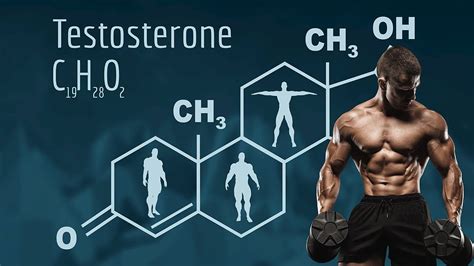What specific diet & exercise optimize male testosterone for peak performance?

Understanding Testosterone’s Role in Peak Performance
Testosterone, often hailed as the cornerstone of male health, extends its influence far beyond sexual function. Optimal levels of this vital hormone are crucial for maintaining muscle mass, bone density, energy levels, mood, cognitive function, and even cardiovascular health. For men aiming for peak physical and mental performance, optimizing testosterone is not just a goal, but a fundamental requirement.
While various factors can impact testosterone, diet and exercise are two of the most potent levers we can pull to naturally support its production. Understanding the specific strategies in these areas can empower men to unlock their full potential and sustain a vibrant, energetic lifestyle.

The Dietary Blueprint for Testosterone Boost
Macronutrient Balance: Fats, Proteins, and Carbs
A balanced intake of macronutrients is foundational. Healthy fats, in particular, are essential as cholesterol serves as the precursor to testosterone. Focus on monounsaturated and saturated fats from sources like avocados, olive oil, nuts, and grass-fed meats. Aim for approximately 20-30% of your daily calories from healthy fats.
Adequate protein intake supports muscle repair and growth, which indirectly aids testosterone production through resistance training. Lean protein sources like chicken, fish, eggs, and legumes should be prioritized. Complex carbohydrates from whole grains, fruits, and vegetables provide sustained energy for workouts and overall bodily functions without causing significant insulin spikes that can negatively impact hormones.
Crucial Micronutrients
- Vitamin D: Often referred to as a pro-hormone, Vitamin D plays a significant role in testosterone synthesis. Sunlight exposure is the best source, but supplementation and foods like fatty fish can help.
- Zinc: This mineral is vital for numerous bodily functions, including hormone production. Oysters, red meat, and pumpkin seeds are excellent sources.
- Magnesium: Involved in over 300 enzymatic reactions, magnesium is linked to higher free and total testosterone levels. Spinach, almonds, and dark chocolate are good dietary options.
Foods to Embrace and Avoid
Prioritize whole, unprocessed foods. Load up on leafy greens, cruciferous vegetables (like broccoli and cauliflower, which help manage estrogen), berries, and lean proteins. Limit sugar, refined carbohydrates, and processed foods, as these can contribute to inflammation and insulin resistance, both detrimental to hormone balance. Additionally, excessive alcohol consumption can negatively impact testosterone levels, so moderation is key.

Exercise Strategies for Hormonal Harmony
Prioritize Strength Training and Compound Movements
Resistance training, particularly with heavy weights and compound movements, is a potent stimulator of testosterone. Exercises like squats, deadlifts, bench presses, overhead presses, and rows engage multiple muscle groups, leading to a greater hormonal response. Aim for 3-4 sessions per week, focusing on progressive overload—gradually increasing weight or repetitions over time.
Embrace High-Intensity Interval Training (HIIT)
Short, intense bursts of exercise followed by brief recovery periods have been shown to boost testosterone and growth hormone. Incorporating HIIT into your routine, such as sprints or circuit training, 1-2 times a week can be highly effective. The key is maximal effort during the work intervals.
Avoid Overtraining and Chronic Cardio
While exercise is beneficial, excessive endurance training or chronic overtraining can actually suppress testosterone levels by increasing cortisol (the stress hormone). Listen to your body, prioritize recovery, and ensure you’re not constantly pushing to the point of exhaustion without adequate rest. Moderate cardiovascular activity is healthy, but long, exhaustive sessions may be counterproductive for testosterone optimization.

Lifestyle Factors Amplifying Testosterone Naturally
Quality Sleep is Non-Negotiable
Sleep is a critical period for hormone production and regulation. Chronic sleep deprivation significantly lowers testosterone levels. Aim for 7-9 hours of high-quality sleep per night. Establish a consistent sleep schedule, create a dark and cool sleep environment, and avoid screens before bed to optimize your sleep hygiene.
Stress Management and Cortisol Control
Chronic stress leads to elevated cortisol levels, which has an inverse relationship with testosterone. Implementing stress-reducing practices like meditation, deep breathing exercises, yoga, spending time in nature, or engaging in hobbies can help manage cortisol and support testosterone production.
Limit Alcohol and Avoid Endocrine Disruptors
Excessive alcohol consumption has been shown to decrease testosterone. Moderation is advised. Furthermore, be mindful of endocrine-disrupting chemicals (EDCs) found in plastics (BPA, phthalates), pesticides, and certain personal care products. Opt for natural alternatives and store food in glass containers when possible.

Consistency is Key for Sustained Results
Optimizing male testosterone for peak performance is not a quick fix but a long-term commitment to a healthy lifestyle. The synergistic effect of a nutrient-dense diet, a smart exercise regimen, and mindful lifestyle choices creates the ideal environment for your body to naturally produce and utilize testosterone efficiently.
By consistently applying these specific dietary and exercise principles, men can experience enhanced energy, improved body composition, sharper mental clarity, and an overall elevated sense of well-being, paving the way for sustained peak performance in all aspects of life.










